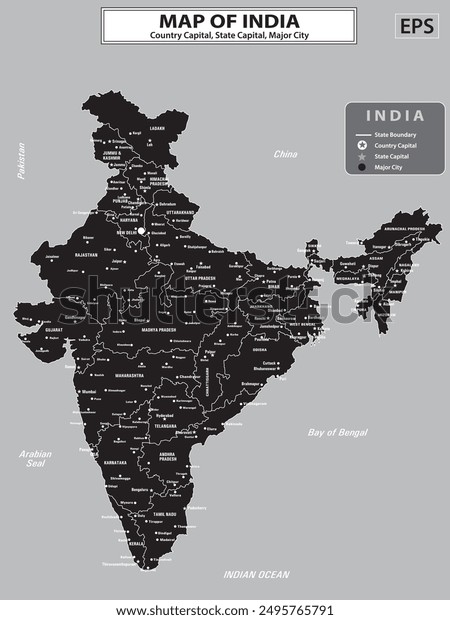The Geography And Politics Of This Country

Table of Contents
The Geographic Landscape: Shaping National Identity and Political Boundaries
Physical Geography
The UK's physical geography is remarkably diverse, encompassing a variety of landscapes that have profoundly shaped its history and development. Its island nature, encompassing Great Britain and Ireland (Northern Ireland being part of the UK), has historically provided a degree of natural defense and fostered a unique national identity. The rugged terrain of Scotland, contrasted with the rolling hills of England and the dramatic coastline of Wales, has influenced population distribution and economic activities.
- Highlands of Scotland: These mountainous regions have traditionally supported a smaller population, leading to distinct cultural and political identities.
- The fertile plains of East Anglia: This region's rich agricultural land has historically been a center of economic prosperity and political influence.
- The extensive coastline: This has been crucial for trade, fishing, and naval power throughout British history.
Climate and Natural Resources
The UK experiences a temperate maritime climate, characterized by mild winters and cool summers, relatively abundant rainfall, and a changeable weather pattern. This climate has supported a variety of agricultural activities, although it's not suitable for all crops. The nation's natural resources, while not as extensive as some other countries, have played a significant role in its economic and political development.
- Coal: Historically, coal was a major driver of the Industrial Revolution, contributing to the UK's economic and political dominance.
- North Sea Oil and Gas: The discovery of significant oil and gas reserves in the North Sea in the latter half of the 20th century had a significant impact on the UK's energy security and economy.
- Limited arable land: This has historically made the UK reliant on trade for food, influencing its foreign policy and economic strategies.
Geopolitical Location and Borders
The UK's location on the western edge of Europe has been both an advantage and a challenge. Its island status provided defense against invasion, but also required a strong navy to protect trade routes. Its proximity to the European continent has also made it a key player in European politics and conflicts throughout history. While the UK doesn't have significant land border disputes, its relationship with Ireland, particularly Northern Ireland, remains a complex and sensitive political issue.
- Proximity to Europe: This has shaped UK foreign policy and its participation in European affairs, culminating in its recent exit from the European Union (Brexit).
- The Irish border: This remains a politically sensitive issue with implications for the UK's relationship with the Republic of Ireland and the EU.
- Strategic maritime position: This has enabled the UK to control vital trade routes and project its power globally for centuries.
The Political Landscape: A Reflection of Geographic Influences
Government Structure and Political Systems
The UK operates as a constitutional monarchy with a parliamentary system. This system, evolved over centuries, reflects a complex balance of power between the monarchy, Parliament, and the executive branch. The decentralized nature of power within the UK, with its four constituent nations (England, Scotland, Wales, and Northern Ireland), reflects geographic factors and historical development.
- Westminster Parliament: The central government in London, a reflection of England's historical dominance.
- Devolution: The transfer of some powers to devolved governments in Scotland, Wales, and Northern Ireland represents a response to regional identities and geographic distinctions.
- Major political parties: The Conservative, Labour, and Liberal Democrat parties all have regional strongholds and varying levels of support across the four nations, reflecting geographic and socio-economic differences.
Political Divisions and Regionalism
The UK's geography contributes significantly to regional identities and political divisions. Economic disparities exist between regions, with London and the South East generally being wealthier than many other areas, leading to political tensions and calls for greater regional autonomy.
- North-South divide: This is a persistent theme in UK politics, reflecting economic and social disparities between the more prosperous south and the relatively less developed north.
- Scottish nationalism: A strong sense of Scottish national identity, partly rooted in its unique geography and history, has fueled the movement for Scottish independence.
- Welsh nationalism: Similar to Scotland, Wales has its own distinct national identity, which influences its political landscape.
Geopolitics and International Relations
The UK's geographic location, its historical role as a global power, and its economic and political ties to other nations have shaped its foreign policy and international relations. Brexit has significantly altered its relationship with the European Union, while its membership in NATO reflects its strategic alliance with other North American and European countries.
- NATO membership: A cornerstone of UK security policy, reflecting its geopolitical position and alliances.
- Post-Brexit relations with the EU: This remains a major challenge and area of focus in UK foreign policy.
- Commonwealth ties: The UK's historical connections through the Commonwealth influence its relations with a range of countries globally.
Conclusion
Understanding the geography and politics of the UK demonstrates a clear and inseparable relationship. The country's physical features, climate, and location have profoundly influenced its political development, its government structure, and its international relations. Analyzing the interplay between these elements provides crucial context for interpreting current events, from Brexit to the ongoing debate over Scottish independence. To further enhance your understanding of the geography and politics of the UK, exploring resources like academic journals, government websites, and books dedicated to British history and political science is highly recommended. Deepening your understanding of the geography and politics of the UK is crucial for comprehending its present and predicting its future. Continue exploring the political geography of the UK and analyzing the interplay between geography and politics in this complex and fascinating nation.

Featured Posts
-
 Toppins 21 Points Set Stage For Colorados Matchup Against No 9 Texas Tech
May 02, 2025
Toppins 21 Points Set Stage For Colorados Matchup Against No 9 Texas Tech
May 02, 2025 -
 Six Nations Dalys Last Minute Score Secures England Win Over France
May 02, 2025
Six Nations Dalys Last Minute Score Secures England Win Over France
May 02, 2025 -
 Financial Plannings Future Cfp Board Ceo Announces 2026 Retirement
May 02, 2025
Financial Plannings Future Cfp Board Ceo Announces 2026 Retirement
May 02, 2025 -
 Stratigiki P Syxikis Ygeias 2025 2028 Basika Simeia Kai Ependyseis
May 02, 2025
Stratigiki P Syxikis Ygeias 2025 2028 Basika Simeia Kai Ependyseis
May 02, 2025 -
 Compensation For Play Station Christmas Voucher Glitch Free Credit From Sony
May 02, 2025
Compensation For Play Station Christmas Voucher Glitch Free Credit From Sony
May 02, 2025
